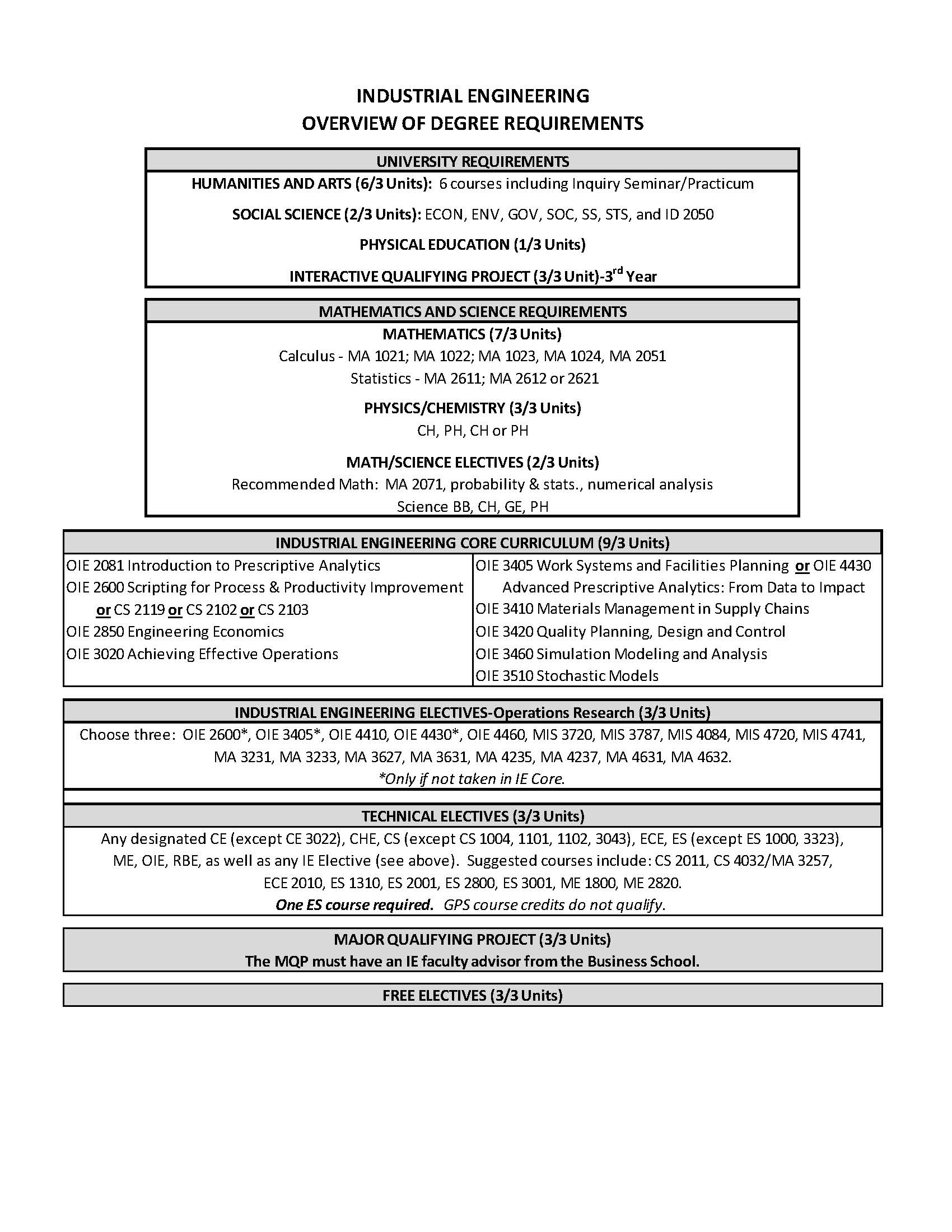Program Mission
The mission of the Industrial Engineering (IE) Program at WPI is to prepare undergraduate students for professional engineering practice, providing the foundation for careers of leadership in challenging global and technological environments. We strive to accomplish this through:
- An innovative, project-based curriculum
- An emphasis on industrial engineering skills with system applications
- A flexible curriculum responsive to student interests and changes in the competitive environment
- An environment that encourages faculty/student interaction
- A culture that encourages the active involvement of students in their learning
Program Educational Objectives
The educational objectives of the IE Program describe the expected accomplishments of graduates during the first few years after graduation. They include:
Industrial Engineering Knowledge and Design Skills. Graduates should be able to support operational decision-making and to design solutions that address the complex and changing industrial engineering problems faced by organizations, using current concepts and technologies.
Communication Skills. Graduates will be sought out as the preferred employees to represent their companies both for internal and external communications based upon the excellence they will have achieved through persistent updating of their knowledge of new communication tools and by taking advantage of opportunities for critical peer review.
Teamwork and Leadership Skills. Graduates should be able to serve as change agents in a global environment, based on strong interpersonal and teamwork skills, an understanding of professional and ethical responsibility, and a willingness to take initiatives.
Student Outcomes
Specifically, graduating students should demonstrate that they attain the following:
- an ability to identify, formulate, and solve complex engineering problems by applying principles of engineering, science, and mathematics
- an ability to apply engineering design to produce solutions that meet specified needs with consideration of public health, safety, and welfare, as well as global, cultural, social, environmental, and economic factors
- an ability to communicate effectively with a range of audiences
- an ability to recognize ethical and professional responsibilities in engineering situations and make informed judgments, which must consider the impact of engineering solutions in global, economic, environmental, and societal contexts
- an ability to function effectively on a team whose members together provide leadership, create a collaborative and inclusive environment, establish goals, plan tasks, and meet objectives
- an ability to develop and conduct appropriate experimentation, analyze and interpret data, and use engineering judgment to draw conclusions
- an ability to acquire and apply new knowledge as needed, using appropriate learning strategies.
Program Distribution Requirements for the Industrial Engineering Major
The normal period of residency at WPI is 16 terms. In addition to the WPI requirements applicable to all students (see page 7), students wishing to receive the ABET accredited degree designated “Industrial Engineering” must complete a minimum of 10 units of study in the areas of mathematics, basic science, and engineering topics as follows:
Mathematics and Science Requirements
No GPS credits may be used.
One from DEV, ECON, ENV, GOV, PSY, SD, SOC, SS, STS
Industrial Engineering Topics (15/3 units)
Industrial Engineering Topics must include courses in the following three topic areas

